The hostilities between Russia and Ukraine continue against the backdrop of declarations on the need for a ceasefire that are at times sincere, but more frequently hypocritical. Fighting of such magnitude and duration was last witnessed on this land during the years of the Great Patriotic War. Unfortunately, even this frightening comparison will not compel the individuals authorised to adopt the key decisions today to shudder and beat a retreat. Over the past three and a half years there have been a number of opportunities to put an end to the bloodshed. However, initially one decision-maker was opposed to the idea, then other parties were reluctant to do so, and then the third and fourth parties rejected the option. And today the whole world watches with callous indifference at how the future is being destroyed.
IMPOTENCE AND DISINTEGRATION
We have entered an era of stagnation, an era devoid of contours and visions of the future. It is clear that none of the decision-makers at a global political level understand what will happen next. We are confronted by the onset of a whole range of ominous factors which were not noticed on time: politicians operating in line with old stereotypes and models have been unable to respond to the new challenges adequately. One should designate among such factors first and foremost the influence of new technologies and also the erosion and distortion of the value-based substance of politics per se.
These are the very factors which facilitated the triumphal return of Donald Trump to the White House1 G. Yavlinsky, Trump Wins Even in Defeat. On the prospects for Trumpism and the threat of fascism // Official website of the politician and economist Grigory Yavlinsky. 23 November 2020. Access (checked on 29 September 2025)., which would appear to have drawn a definitive line on the previous world order. The international order that had to be reckoned with in one way or other during the 80 years after the war is now a relic of the past and no longer works2 G. Yavlinsky, In-Between Times: on the Titanic // Official website of the politician and economist Grigory Yavlinsky. 15 January 2025. Access (checked on 29 September 2025); G. Yavlinsky, Political Entropy // Medium. Moscow. 2021.. International leaders, in Europe in particular, are demonstrating an inability to adopt and even discuss the most important decisions in a professional and substantive fashion. Instead, they articulate virulent and frequently provocative comments and make lofty promises that as a rule are not followed by any practical actions. Furthermore, they adopt individual material steps without even discussing or approving them with the international community or any significant part of this community.
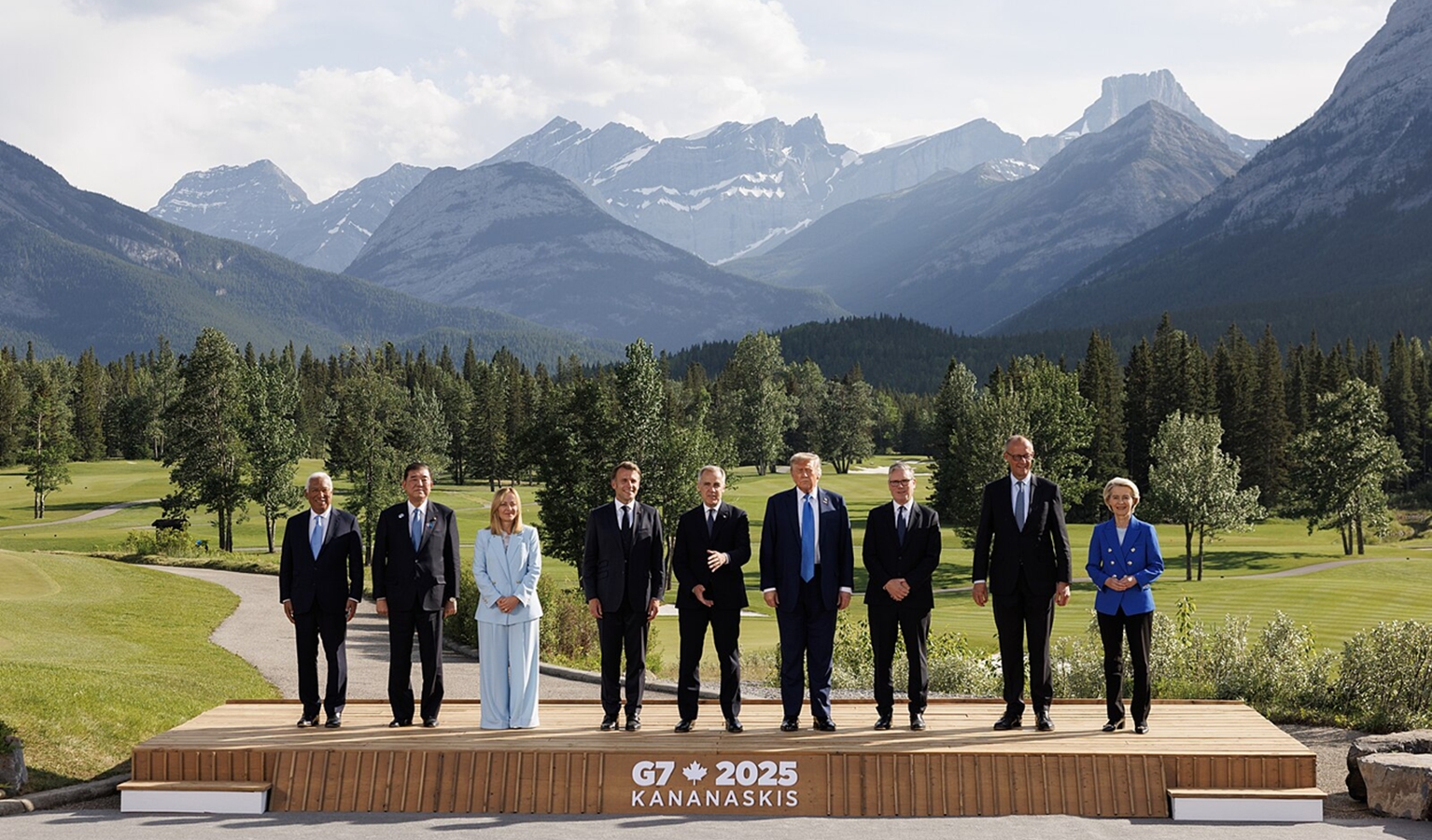
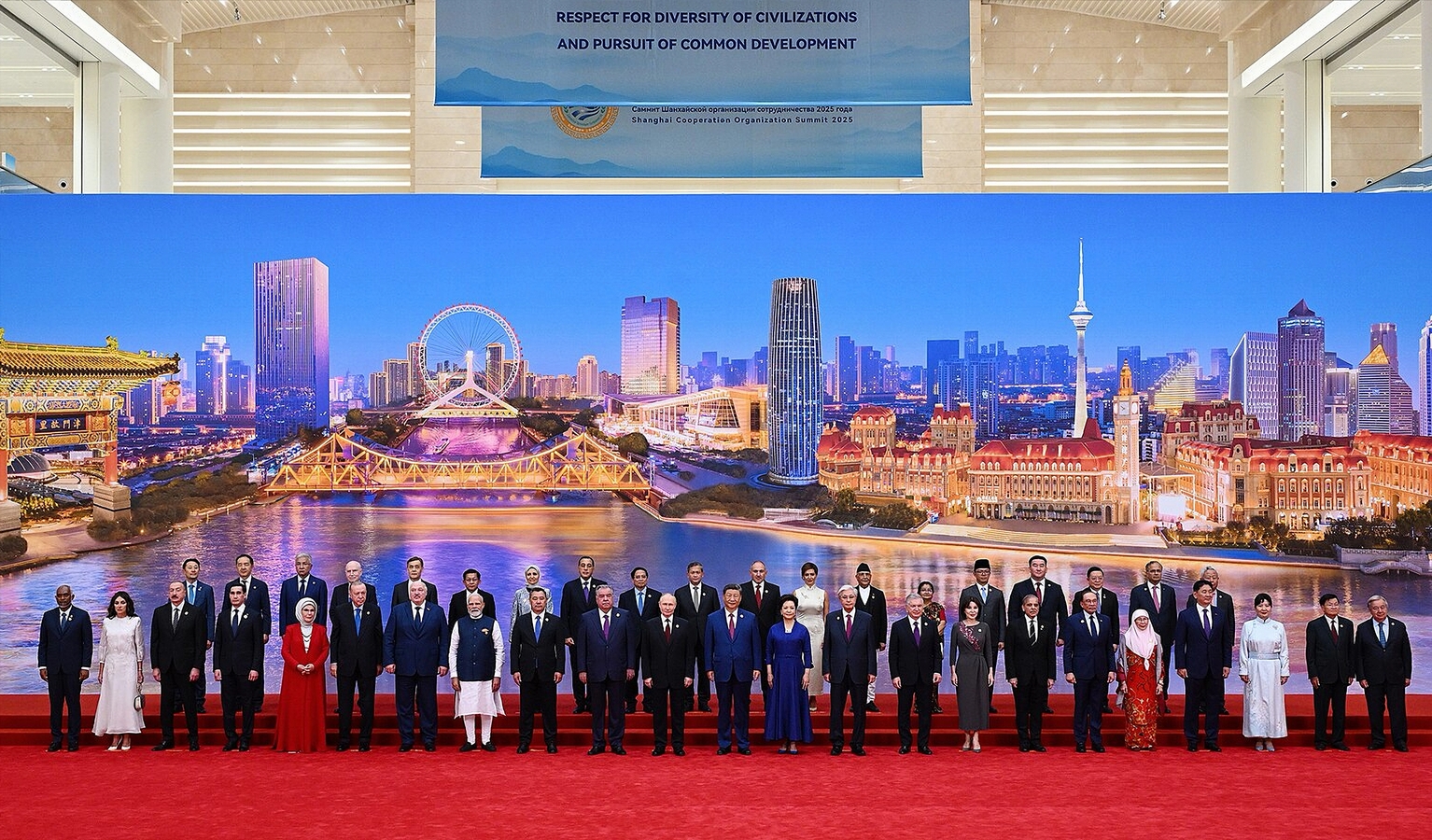
It is evident that international institutions are in crisis, starting with the UN. However, this issue no longer concerns merely international structures. A global political elite that was at some point in time influential, and accordingly the international community in general, are discovering more and more frequently that they are powerless when confronted by critical challenges. The July G7 Summit in Canada proceeded at the height of the Iran-Israel war, but its attendees were not only unable to propose any political resolution of this specific crisis, but also to even hold a general serious discussion – either on the Middle East, or on Ukraine, or other key issues. At the last SCO Summit in China, the Chinese, Indians and Russians issued a challenge to the West – the forum was attended by acknowledged pariahs of the Western world – Iran and North Korea. Against this backdrop European countries cannot even reach agreement amongst themselves on the position to take on the conflict between Russia and Ukraine, while Europe’s confrontation with the USA on a wide range of issues jeopardises the very existence of the transatlantic alliance.
The current state of European politics – the abrupt surge in nationalism and populism, centrifugal trends and the threat of a split within the European Union — this is simultaneously the ghost and consequence of the passing of the previous world order. The European Union is one of the most important and significant symbols of success of post-war politics and the historical achievements of the era. Today Europe is facing the real risk of ending up on the periphery, losing out in competition with both America and Asia and becoming a beacon of instability with a dwindling population which will in the end be replaced by migrants from other regions of the world. The militarisation of the European Union and increase in defence expenditure against the backdrop of the dissemination of propaganda on the dangers of an imminent war from the east will merely drive’s Europe disintegration: voters will not want to suffer tax increases and a simultaneous decrease in living standards, while the mobilisation of youth to the armed forces will elicit extreme discontent and trigger protests. In these circumstances the support of nationalists – populists will only intensify.
You have at the centre of the crisis in the Middle East Israel, a state which was also established as part of the post-war world based on a UN resolution: after the genocide of six million European Jews in Europe, a decision was adopted to create the world’s first Jewish state. Today against the backdrop of the impotence and inaction of key international institutions, threats to Israel’s security are escalating into dangers of an existential nature.
The system of nuclear arms control treaties developed in the second half of the last century is being destroyed, with the risk that the nuclear weapons non-proliferation regime will follow suit.
The political mechanism of representative democracy is being distorted by the pressure of populism. From a political perspective there has been a rapid weakening of traditional ideologies. It is worth noting here that there is no place in the new agenda for the rational conceptualisation of the desired social structure. Everything is focused on emotions, on inciting resentment and on a restoration of the former “golden era”.
The key political objective has been removed from public politics – to ensure the survival and development of society by seeking what is best for the collective interest (or more often a balance of interests) and looking for ways to make this happen. This is one of the characteristics of political entropy, the new systemic phenomenon of modern civilisation: adapting politics to a new situation through the erosion of its rational substance3 G. Yavlinsky, Political Entropy // Medium, Moscow. 2021..
Eighty years since the end of World War II humanity has gone full circle – from recognition and acknowledgment of the disaster which caused tens of millions to lose their lives, through the construction of systems of intrastate and inter-state relations where human life constituted an indisputable value, to the utter devaluation and erosion of human lives from international politics. This was the outcome in Russia and certain countries in the post-Soviet space as a consequence of the failure of the reforms of the 1990s and the construction of an authoritarian-corporate corrupt state system4 G. Yavlinsky, Underlying Causes // Official website of the politician and economist Grigory Yavlinsky. 2 July 2022. Access (checked on 29 September 2025).. This situation has been facilitated in the West by the bureaucratisation of democratic institutions, the growing political ochlocracy leveraging the populism of social networks — populist mob rule, as well as digital propaganda technologies.
The dehumanisation of “anyone foreign”, others, “people who are not like us” is becoming a key trend in a world that is fragmenting more and more. This concerns not only people from a different race, a different nation or different religion and not only sexual minorities. In principle, such an attitude could be applied to any social groups segregated based on the most diverse symptoms.
MISSED OPPORTUNITIES
Thirty-five years after the end of the Cold War it has become crystal clear that international politics has failed to transcend to a qualitatively new level.
This can be attributed to the narrow mindedness and limitations of political elites, combined with a need for the instant satisfaction of avarice. As a rule, this predetermines the lack of vision and understanding of the future. This is particularly perceptible when it comes to Russia5 You can understand the causes and reasons for the current phenomena and events by studying the history of the 1990s and the start of the 2000s. For more details, see: G. Yavlinsky, Underlying Causes // Official website of the politician and economist Grigory Yavlinsky. 2 July 2022. Access (checked on 29 September 2025)..
Recently the protocol of the meeting of the US National Security Council was declassified, where they had discussed in June 1991 the reform programme of the Soviet/Russian economy assigned the English name “Grand Bargain”. I participated personally in its development with American colleagues6 Declassified materials of the US National Security Council: how Yavlinsky’s programme could change history // Official website of the Yabloko Party. 21 April 2025. Access (checked on 29 September 2025).. The goal of the programme was the integration of the USSR and Russian economy in the international system on the terms of mutually advantageous cooperation with the West, by analogy with the Marshall Plan for post-war Europe.
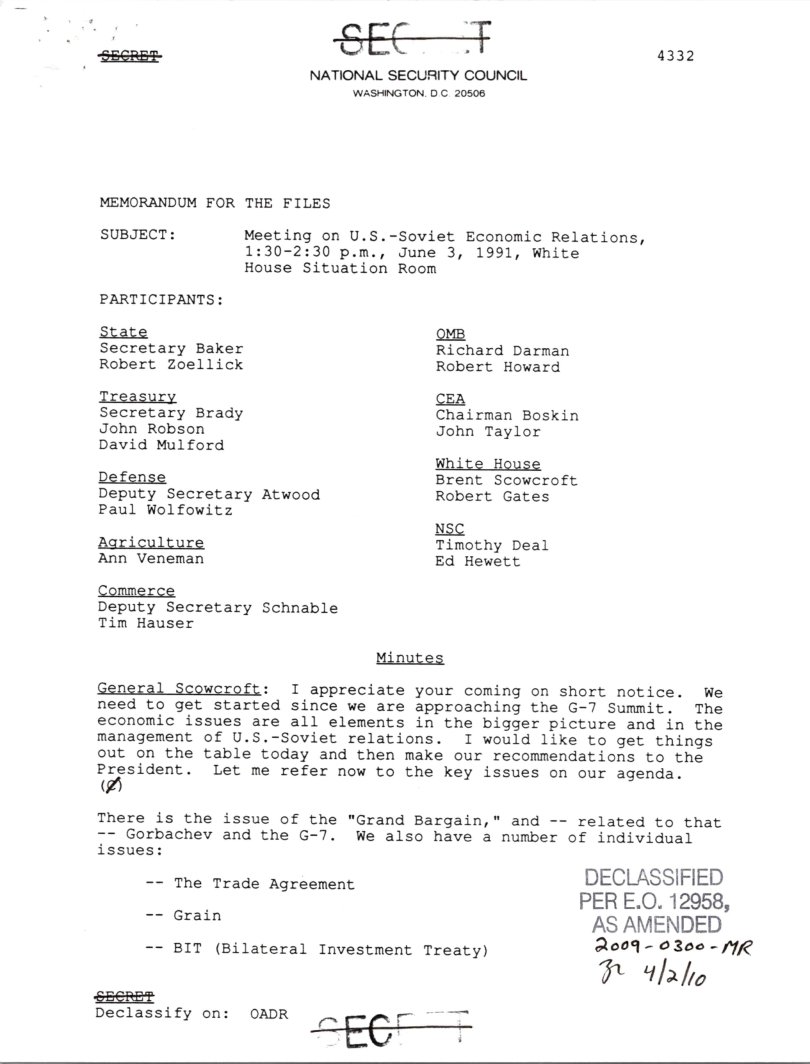
However, it follows from the declassified protocol that while the high-ranking American officials noted at the secret meeting that the programme was highly professional, they held that the direct benefit for the USA was only if the reform of the USSR/Russia economy turned this country into a “third-rate power” and in addition minimised opportunities to finance the military industrial complex, thereby critically weakening the country’s military potential. It goes without saying that nothing of the kind was stipulated in the “Grand Bargain”. That is why the Americans decided not to support the programme and replaced it with their own proposals which served as the basis for the reforms which led to inflation of 2,600% in 1992. The failed reforms resulted on the one hand in the rapid impoverishment of the people and rising crime, and on the other hand in the criminal privatisation of big and medium-sized state property, creating the pervasive corruption of the modern Russian state. In these circumstances the Russian authorities no longer had any interest whatsoever in developing such fundamental democratic institutions as an independent judiciary, honest elections, an independent parliament and free press in the country, and today’s tragic events in Russia are a logical consequence.
Of course, the position adopted by the American officials was not the only reason why the Russian reforms of the 1990s failed and why the opportunity was not seized. However, the declassified protocols of the US National Security Council are extremely revealing from the standpoint of the mindset of the global political elite. We can see how key political figures at the start of the 1990s in the West were incapable of thinking ahead and looking forward and were unable or did not want to see the epochal opportunities that had been unlocked.
And today it is with deep regret that I have to state that the potential for Russia’s integration in Europe, which arose at the turn of the 20th and 21st centuries, was not leveraged. This would have required a new strategy of the European Union not only in relation to Russia, but also the entire post-Soviet space. At the same time, it should be acknowledged here that our country had been moving all these years in the opposite direction to Europe – notwithstanding all the ostentatious accoutrements in the form of Russia’s participation in the Big 8 and the friendship of Russia’s leading figures with Western leaders.
However, even in these conditions, the potential to achieve a qualitatively new level of relations remained. After the tragedy of 11 September 2011, the opportunity for a rapprochement between Russia and the West based on the joint fight against terrorism was missed. For example, the plan for the creation of a joint Russian and European anti-missile defence system discussed at the highest level in 20017 President Vladimir Putin held negotiations with NATO Secretary-General George Robertson // Official website of the Russian President. 20 February 2001. Access (checked on 29 September 2025). might, if it had been implemented, have prevented at the very least today’s confrontation between Russia and Ukraine, and in the best-case scenario have laid the foundation for expanding the areas of Russian and European integration. However, NATO rejected the concept of the anti-missile defence system and Russia continued distancing itself from the West.
In addition, at the start of the 1990s, after the end of the arms race, billions and billions of dollars were freed up in the West. These funds could have been assigned to the development of so-called third world countries which had the potential for large-scale economic and cultural development. This could have elevated the global political order to a qualitatively new level. In addition, such a project under the aegis of the UN might have actually reinforced the organisation’s diminishing authority. In 2001 Prague’s Forum 2000 chaired by the President of Czechia Vaclav Havel adopted and supported my initiative on providing universal free primary education for children all over the world under the aegis of the UN, to be financed with the funds freed up in connection with the end of the Cold War, in other words, thanks to demilitarisation and disarmament. However, in the end the initiative was never implemented, while the money from the defence sectors of the economy was invested instead in financial pyramids and buried under the ruins of the global financial crisis of 2007-2008.
Steps which might have served as the building blocks for the future of the world were not taken, and today we are observing the collapse of the post-war international order and the lack of any premises for the creation of a new global system. The international order which had existed for 80 years is being replaced by chaos.
APPROACHING THE ICEBERG
It is in principle impossible to adapt to the new era and to align oneself to the new world as uncertainty is the key driver of this new period: unpredictability, the fact that it is impossible to forecast the future, even in the medium term. Today as nobody is able to draw up a long-term outlook, nobody is ready to describe it. It is no accident that the populist ochlocracy refrain (being implemented through populist mob rule) in every country sounds similar to the phrase: “make great again”. In other words, all the attention is focused on the past, any movement happens with everyone looking backwards.
The crisis of the vision of the future has been evolving over a long time. However, it is only now that the impasse has become so clear. This has already led to and will also lead to extremely serious consequences.
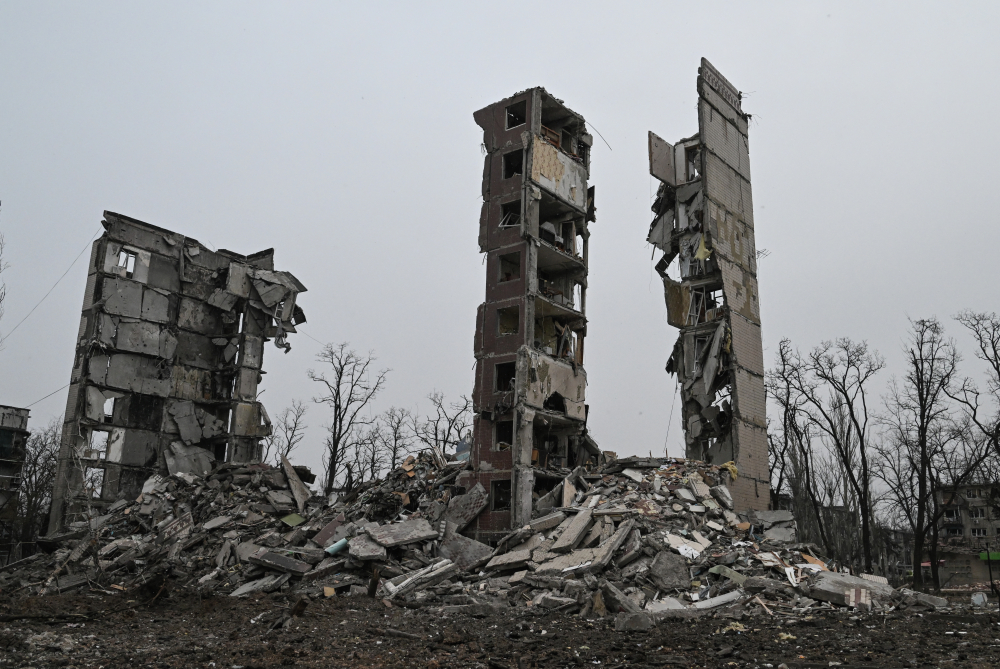
The ramping up and use of military force is becoming the knee-jerk reaction to the chaotization of the world. The so-called “superpowers” and all the participants in the political process in general perceive that this will guarantee their safety. That is why Europe is increasing military expenses. That is why, for example, the Baltic States, Finland and Poland are withdrawing from the Mine Ban Treaty8 In the second half of the 20th century, the idea of banning mines was perceived to be relevant. Furthermore, the main argument against mines is that they cause damage in future, wars end, but the mines remain and continue killing and crippling people for many more years. In 2024-2025 we have witnessed a trend where European countries (the Baltic States, Finland) have withdrawn from the Mine Ban Treaty. The pretext – the effectiveness of this weapon and the danger of an attack by Russia. .
The military hostilities in Ukraine have been continuing now for three and a half year. Effectively it has been clear all this time that the conflict cannot be resolved on the battlefield and that a ceasefire is essential to save lives. In autumn 2022 I conveyed an appeal through the Vatican’s embassy in Moscow to the Pope Francis on the need to initiate a ceasefire. However, until recently any conversation on a ceasefire would elicit aggression and would be rejected by all sides. To all intents and purposes, Pope Francis was my only ally. He was also attacked and mocked for his calls for peace.
In late spring and summer 2025, thanks to a large extent to Trump’s calls, the topic of a ceasefire between Russia and Ukraine was legitimised during public discussions. However, no real political will to bring an end to the loss of lives has appeared. Now it would appear that Trump, after failing to achieve anything with his calls and exhortations, has grown tired of waiting and “is washing his hands” of the war, leaving Europeans to resolve the European crisis on their own.
Human life continues to be devalued. As a rule, only the financial and geopolitical matters are discussed in detail, while the hundreds of thousands of lost lives are neither a factor, nor a restraint. In Europe Ukraine positions itself effectively as a tool used to crack down on Russia. Moreover, a number of European politicians perceive this to be the geopolitical function of the Ukrainian state and its international role.
Nobody is even talking seriously at a political or social level about Ukraine’s actual future as an independent sovereign state which has borders on the one hand with NATO countries and on the other hand with Russia.
There has been no discussion on the steps to be taken to de-escalate the conflict between Russia and Ukraine, which must inevitably follow the end of the armed confrontation.
In actual fact, there should be talks about a long-term common security system – up to and including new international treaties along the lines of the Helsinki Accords — on the status of the Russian and Ukrainian languages in Ukraine and Russia, on the protection of the rights of citizens in conflict zones and elsewhere, on the restoration of everything that had been destroyed and much else besides. For it is specifically de-escalation that is the path to true peace not only between Russia and Ukraine, but also on the entire European continent.
It is already extremely important to understand today: unless there is a discussion of specific de-escalation steps, it will be impossible to make any progress on the termination of the military hostilities, for if there is no understanding as to the actual direction, the negotiations at any level will get bogged down — which is what is happening at present – on the resolution of current problems – naturally these are important matters, but they are not essential for the resolution of the conflict between Russia and Ukraine.
Furthermore, the primitive propaganda-based analysis being presented today in the traditional popular Western press is solely unidirectional and has only one purpose – to intensify the confrontation, promote continuation of the conflict and prepare for a big war. Today it is virtually impossible to read anything else about the conflict between Russia and Ukraine in the West’s mainstream press.
In these circumstances the entire world seems to be sleepwalking towards to a new big war – both society and the elites themselves are not reacting to the danger signals, they have “zoned out”. And even such a disturbing event as the penetration by military drones of the airspace of NATO countries is not being perceived in the context of the danger of a big war that must be minimised using all available tools. Such incidents are instead being exploited to foment tension even more. All this demonstrates that it is highly unlikely that the current heads of state of leading countries understand the causes, the crux and consequences of such developments and therefore are unable to take responsibility and wrest mankind back from self-assured destruction.
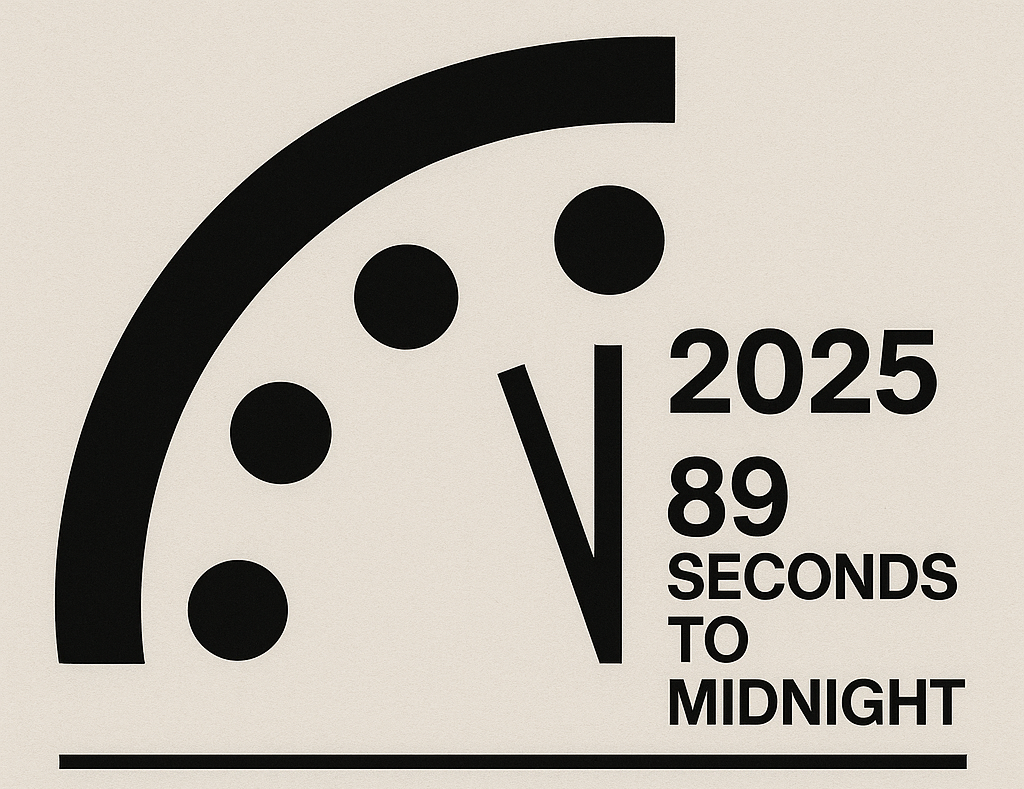
New military technologies are being developed rapidly. In particular, the development and production of drones have already changed the nature of modern hostilities. Artificial intelligence is also being used more and more frequently in the military sector. Nuclear weapons are for the time being the sole deterrent, preventing mankind from engaging in a new world war. However, nuclear arms control agreements and treaties are ageing or are being revoked, whereas the number of countries that have nuclear bombs is increasing.
And the nuclear arsenal will be deployed virtually simultaneously from the start of the confrontation. The extent to which the use of a nuclear weapon might prove fatal for civilisation is an issue that is no longer ambiguous and theoretical, but is instead a clear-cut and practical matter, measured in tens of millions or even hundreds of millions of lost lives.
In today’s international political environment any attempt to occupy the best position and to hope to secure an advantage in the increasing global disorder is comparable to searches for a more comfortable cabin on the Titanic, which is about to crash into the iceberg. Inside the Titanic these actions may appear to be rational, but in the deep of night the ship’s passengers in the ocean do not make any distinction between outcomes and do not see what is lying in wait for them.
The risk of direct confrontation between nuclear states is the very iceberg that stands before us right now.
Even if the current leaders of Russia, the USA, Europe and China are able to agree on demarcating spheres of influence and put a break on the sleepwalking to war, all the understandings will be temporary. These understandings will not open up a global long-term future and will only delay the crash into the iceberg for a brief moment in time. A principled change of direction requires a new understanding of prospects and the future.
TECHNOLOGICAL THREAT
Meanwhile, the image of mankind’s future is becoming the central factor in the techno-futuristic theories on the world of new technologies and artificial intelligence. The ideologists of modern techno-futurism are major American businessmen from the IT industry – Peter Thiel, Marc Andreessen and Elon Musk. It is notable that these figures have already crossed over from the business community: one of them participated proactively in US Presidential campaigns, another one selected the staff for the US administration, while a third even managed to work in the White House for a while. It is well known that big IT business is standing behind the current US Vice President J.D. Vance.
The new techno-futurists declare that the future of mankind is based first and foremost on new digital technologies, artificial intelligence, the collection and processing of so-called big data — vast, constantly growing data files which are so big and varied that they cannot be processed using standard methods, bioengineering, genetic modification.
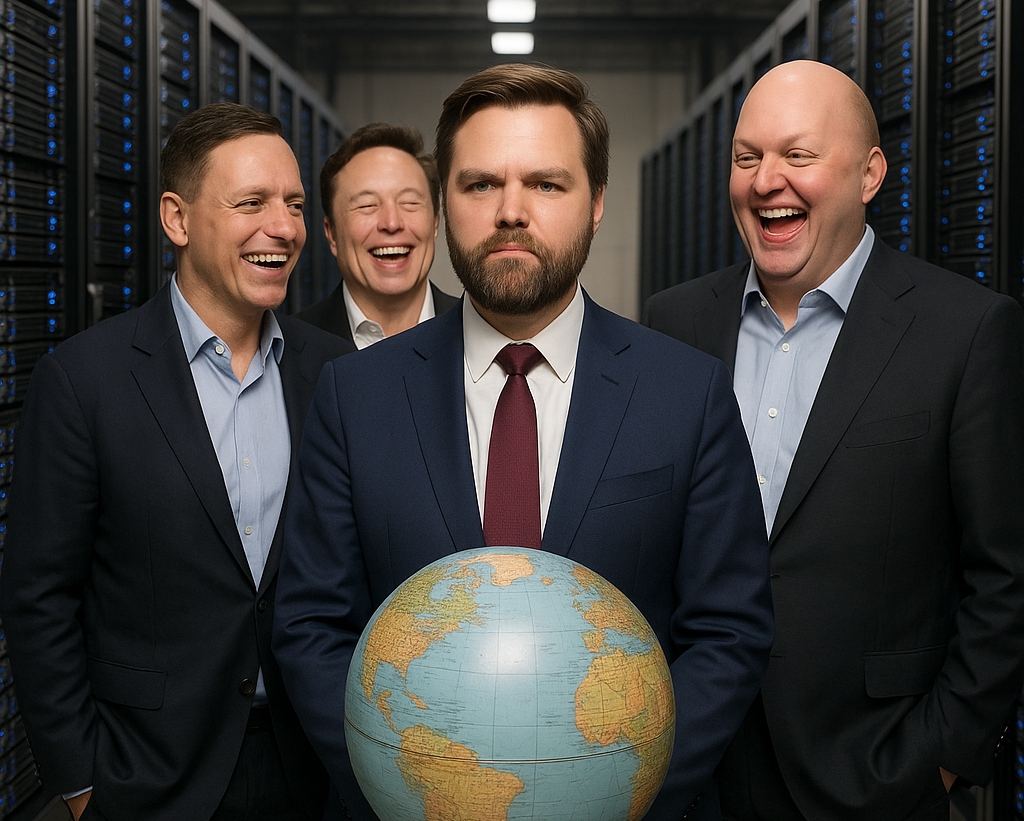
Moreover, the techno-futurists have their own particular understanding of the concept of freedom: they perceive the purpose of freedom not to be the freedom of the human individual, but rather the freedom to disseminate and develop technologies, while democracy in their opinion is actually placing restraints on technologies and accordingly is inhibiting freedom per se and therefore is redundant. Pursuant to the theory of the techno-futurists, in the new reality only the society (country, state) that comes first in the race will survive and succeed – more likely, even be a monopoly – in the area of high technologies and there is no alternative.
And in this case the fight for technological and geopolitical supremacy between North America (USA) and South-East Asia (China) will determine the future of the world. This will be a competition in the high-tech sector, and not a competition of systems seeking to promote human progress. It is worth noting here that the technologies are considered first and foremost not as a tool to improve qualitatively the position of the absolute majority, but rather as tool to defeat a competitor. This is the new political philosophy – competition in the form of irreconcilable confrontation.
It is specifically in this context that the official document “Winning the Race: America’s AI Action Plan” disclosed in July 2025 was drafted9 Winning the Race. America’s AI Action Plan // The White House. 10 July 2025. Access (checked on 29 September 2025).. The plan proposes the lifting of restrictions that inhibit technological development, the accelerated construction of energy infrastructure, notwithstanding the climate issues, hard-edged confrontation with China (effectively the technological breakup of the world)10 On the likelihood of the technological split of the world as a result of competition between the USA and China, see G. Yavlinsky, The 5G Break Zone // Official website of the politician and economist Grigory Yavlinsky. 1 July 2019. Access (checked on 29 September 2025).. Furthermore, under the plan the potential allies of the United States have no option other than to depend on American technologies.
It is worth noting in particular that the current situation differs fundamentally from R&D cooperation in the past – such as the nuclear or space race. The most profound and substantive research of the 20th century of the atom, the exploration of space or even computer technologies did not intrude into the functioning of the human brain, whereas the key technological achievement of the first quarter of the 21st century – artificial intelligence – is focused specifically on this aspect, penetrating directly into human consciousness. Consequently, artificial intelligence has vast potential to influence every single sphere of human activity and in particular politics. Moreover, we can already talk today about the real threat of a qualitative change not only to human consciousness, but also the actual essence of his moral and ethical foundation. However, this issue merits a separate discussion.
If new technologies become the central focal point, this means that man, his freedom and vital interests (healthcare, education, creativity) will be of little consequence in the new world order. Furthermore, only a tenth of mankind will end up as the beneficiaries of technological expansion, while 90% of the population will be compelled to service the new technologies.
In this case, any political thoughts of individuals and aspirations to play a practical role in politics will be considered an extravagance and relic of the past11 Recently, the world’s first AI Minister was appointed in Albania. The AI Minister will focus on state procurements. The authorities called this “the next step in Albania’s digital transformation”. See: Albania puts AI-created ‘minister’ in charge of public procurement // The Guardian. 11 September 2025. Access (checked on 29 September 2025)..
This is an entirely realistic scenario of the immediate future. However, one can already list today a whole range of aspects attesting to the global historical defeat of the individual and mankind:
— the gulf between technological progress and human development is growing;
— progress is being transformed into a “thing in itself”, the subject of hopes and worship;
— science related to high technologies is being perceived as some kind of magic capable of resolving problems at a different level, which is not under the control of the man on the street and is only available to the select few;
— artificial intelligence is no longer perceived as a tool to achieve human goals, instead AI is endowed with subjectivity;
— human qualities — critical thinking, the mere ability to think — are being undermined by the possibilities offered by the new technologies and are no longer in demand and as a result degenerate.
It can be assumed that in the not-too distant future, when the content being disseminated in social networks is generated primarily via artificial intelligence, information flows and together with them human consciousness will drift away more and more from real problems and emotions, and any content will be supplanted more and more by emotional self-satisfaction. It should come as no surprise that the publishers of the Oxford Dictionary named brain rot as the expression of the year in 2024. This term means the deterioration of a person’s mental or intellectual state as the result of overconsumption of empty and low-quality online content, especially on social media, noted Oxford University Press12 ‘Brain rot’: Oxford word of the year 2024 reflects ‘trivial’ use of social media // The Guardian. 2 December 2024. Access (checked on 29 September 2025)..
The “soft” scenario of excluding the individual from the future might look as follows: a high-technology new world with all its inherent advantages, instead of being made accessible to the whole of mankind, will be owned by a limited number of the select few. In the case of the absolute majority, they will be expected to make do with virtual toys and personal gadgets without any real influence on the world around them. However, taking account of the accelerated devaluation of the individual’s role and accordingly his or her life in general, harsher variants are also possible, including the establishment of dictatorships and totalitarian regimes in countries where it would have been impossible to imagine such developments only yesterday.
If the world of high technologies immersed in chaos continues to play into the hands of the populist ochlocracy and construct politics based on the “make great again” principle, then as has already been the case in history, this will result again in the appearance of a “Fuhrer” and “new order”.
PRIORITISING THE INDIVIDUAL
So we are witnessing how a significant proportion of the world is plunging into chaos. In order to overcome this global disorder, we need to understand the direction we want to take and clearly represent the essence and image of our desired future. There would appear to be no other way of extricating ourselves from the chaos. And even after outlining the path to a new secure world order, there are significant risks on this path that we might fall into the civilisational abyss. In other words, while we draw on our understanding of the errors and miscalculations of the past few decades, we also need to think and act differently – not to go with the flow, in a bid to derive an instantaneous benefit, but to look ahead realistically, have an image of a safe future and move towards its realisation.
There is no point in trying to stop time. It is pointless to try and prevent technological progress or to seek to preserve the previous construct of the world. We need to see and understand what is new and inevitable. In that case, we have a chance to form consciously and intentionally a predominant idea that is capable of releasing people from the fog of brain rot. The key goal is to preserve human life, the individual’s freedom, protect human dignity and create opportunities for creativity. This should become the core tenet of the politics of the 21st century.
The only promising social structure will be one that will manage to put the individual at the historically unprecedented centre: it will create a state where absolutely all the structures, systems and mechanisms, including information technologies together with AI, will be subordinate first and foremost to human interests, will service mankind and will not permit the enslavement, oppression or quashing of the individual.
It is right now when the value of human life is being rapidly diminished all over the world, when people are dying during conflicts lasting many years, when against the backdrop of all the above the prospect of the supremacy of artificial intelligence over man is being etched out more and more clearly – that we need to take control of these processes and change the direction of traffic. To do so, we will need to implement politics where the individual, his or her life and development are the key driver of the future. Not territories, not money, not power, not national or gender – none of these aspects should form the community – the pre-dominant role of humanity is essential. Today society is losing out.

The goal of forming an image of the future is to put the individual at the centre of the entire construct. How should this be done in the current environment? That is a very difficult question. However, if we don’t try to find the answer, political entropy will already become all-encompassing by the middle of the current century, and civilisation and all mankind will draw closer to collapse.
It is important to understand that the individual is not a tool of politics and is not the maintenance personnel of technological progress. The individual is the essence, for whose sake politics and all this progress are required. And if politics leads to the death of people, while technological development does not serve human interest, this means that critical miscalculations were made at some stage and that now all the processes must be reviewed and the direction of politics and technological progress must be changed.
Today we are observing how the bureaucratic model of the state system is being replaced by a technology-based state where the individual is once again accorded a secondary role, as had been the case during the era of totalitarian systems. We must offer as an alternative the concept of a state where the individual will be placed above not only technologies, but also the entire state apparatus. The state should, just like technologies, serve people, and it is becoming clear against the backdrop of developments today that the modern state institution requires a radical overhaul. First and foremost, the state should not serve as a tool of violence, oppression and manipulation of the people. The state is a mechanism and means for implementing the original plan in the biblical sense, and this plan is related above all and primarily specifically to freedom and human dignity, to fundamental morals and values.
Incidentally, on the day when an individual, his or her rights and freedoms become the central focus of all international politics, we will already be able to talk about true multipolarity. For the world will have one single core value, and in that case multipolarity will facilitate the formation of different paths to a single goal, instead of multiplying confrontations and conflicts.
THE FUTURE OF EUROPE — REBOOT AND RECONSTRUCTION
The concept of the future with the individual at the centre will be in demand when creating a new geopolitical quality, the third centre of the future world – jointly with North America and South-East Asia.
The withdrawal of the United States from Europe, which has taken shape since Trump’s return to the White House, could become an opportunity to establish an independent centre and a pole of global politics instead of a problem. Furthermore, a vision of the future built around the individual in contemporary conditions could become the ideological content of this new European centre which will counter both Chinese technological totalitarianism and the American technocratic business concept. No bans and restrictions on research in the area of high technologies, in particular, artificial intelligence, but rather a holistic concept of society and the state with the individual at the centre is the authentic European path in a high-tech world.
Today Europe is experiencing a multidimensional crisis and America’s possible exit, which is forcing Europeans to think about the independent defence of their borders against the backdrop of growing threats, is not the only component here.
Europe’s historical leadership, which had at some point guaranteed it a role as a fully-fledged and influential partner as part of an alliance with the USA, is being lost. This process started in the early 1990s. Europe is gradually losing its role as a global centre. At the same time America is establishing a new configuration based on confrontation with China and in this configuration the Old World is ending up on the periphery.
We know that Europe is the cradle of humanism as a global idea common to humanity. For democracy and human rights were formed conceptually in Europe. That is why Europe is capable of addressing the issue of human consciousness and the lag behind technologies and elevating humanism to a qualitatively new level – the foundation of European culture and European socio-political thinking. The establishment of the political and ideological predominant idea built around the individual represents a unique opportunity to “relaunch” the entire European project in the new conditions.
It needs to be understood here that the European Union in its current political state, in view of numerous constraints and internal contradictions, is unable to resolve this objective. That is why the leaders of the European Union will have to find, sooner or later, a new mutual understanding between countries which corresponds to the impending era. It will have to develop and implement the concept of co-existence and European integration of the prototype of the mid-21st century, inter alia, with due account of the need for peace in the east and accordingly integration with Ukraine, Belarus and Russia, geographical neighbours that are close to Europeans both culturally and mentally.
The most promising, and probably the only real concept of the Europe of the future which would make it possible to preserve the essence and significance of European civilisation – would be one of Europe running from Lisbon to Vladivostok13 Even back in the 1950s the French President Charles de Gaulle repeatedly talked about a common European space from the Atlantic to the Pacific Oceans: “Europe from the Atlantic to the Urals –it is Europe where peoples are tied by history, culture and the economy and they are destined to work together” (speech by de Gaulle in Strasbourg in November 1959). In July 1989 also in Strasbourg Mikhail Gorbachev talked about the need to build a “Common European Home”: “The philosophy of the «Common European Home» concept rules out the probability of an armed clash and the very possibility of the use of force or threat of force – alliance against alliance, inside the alliances, wherever. This philosophy suggests that a doctrine of restraint should take the place of the doctrine of deterrence. This is not just a play on words, but the logic of European development prompted by life itself”., united around the key idea: the protection of life, the individual’s freedom and dignity, and the maximum possible creative opportunities. It is namely Europe, and not Eurasia or some other politician’s mythological project.
Russia is a natural and integral part of European civilisation. The Russian emperor Peter the Great clearly understood this to be the case at the start of the 18th century. He did not simply seek close cooperation with Europe: he proactively modernised Russia, drawing on European experience. In this way European scientific, technical, military and cultural innovations were borrowed, leading to large-scale reforms in Russia – the creation of the fleet, a new regular army and also the foundation of Saint Petersburg.
In modern conditions Russia’s integration in Europe will represent a continuation of the path which had been started by European countries after the end of World War II. Post-war integration on the European continent resulted in the creation initially of common economic and then broader structures. Instead of “demarcating sectors”, France, Great Britain and Germany became in reality one common space.
After the end of the Cold War real opportunities opened up for Russian and European integration. However, the concept of an association underpinned by the European Union did not receive qualitative development, and this became one of the key causes of the crisis today.
It goes without saying that the severe historical heritage of Russia in the 20th century, the utter collapse of post-Soviet economic and political reforms in the 1990s, as well as the modern authoritarian and corporate state management system are material obstacles impeding Russia’s integration in the common European project. In addition, the scale of Russia’s territories and natural resources, which are incompatible with those of other European countries, will have to be duly considered. However, in the current century these are difficulties that can be overcome. The reformatting and reboot of the entire European integration policy and the creation of new forms and principles for unifying around the idea of “the individual at the centre” will also be required. It is clear that all this will only be possible through the establishment of a common value system. This is an extremely complex task, but there is no other way out of the chaos. This is the only positive concept of the new era.
For Russia the prospect of European integration will designate the path to the creation of a state driven by the key goal of a full and comprehensive exercise of human potential, the development of the individual and protection of human dignity. In this sense, Russia needs such rapprochement with European countries as value-based benchmarks, the image of a future capable of unifying Russian society, fragmented and traumatised by the events of the past 110 years.
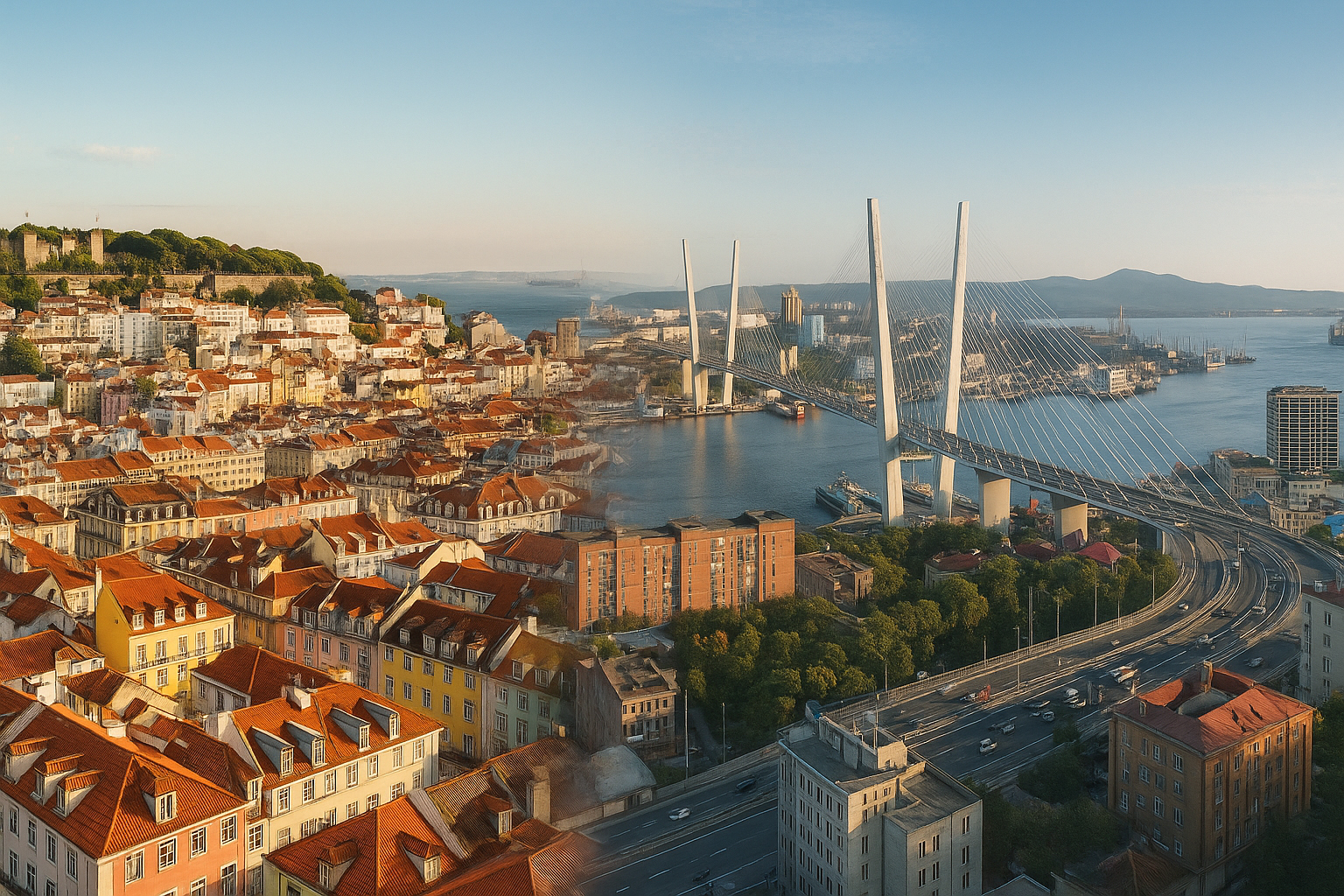
It will only be possible to overcome the current profound and multifaceted crisis in Russia if there is a positive outlook. Today people in Russia live in fear and are smothered by aggressive propaganda. All possible methods are being used to oppress the people, including with the assistance of new technologies.
Against the backdrop of confrontation between Russia and Europe which has intensified over the past few years, any talk about possible mutual integration might appear fantastical thinking. However, take the other pole of the current discourse – a new arms race, the proliferation of nuclear weapons in Europe, the mining of the eastern borders of the European Union and the establishment of a buffer zone between Russia and Europe in the form of the destructive war with Ukraine. Such an agenda is not only meaningless, but also extremely dangerous.
A vision of the future as an endless conflict is wrong. This is also a patently abortive attempt to adapt to the chaos, find a compromise, a comfortable cabin on the Titanic. Europe’s perception of Russia as the enemy and the focus of all its efforts on reinforcing the anti-Russian defence alliance is not a path to the creation of the security of the future, but rather negative consolidation, which will not result in the creation of the new geopolitical quality that Europe requires for its survival.
Today the common objective of Russia and Europe is to elevate European universal values and the related institutions to a new qualitative level, which meets the challenges of new digital technologies and artificial intelligence as well as real global peace in the 21st century.
EPILOGUE
Today’s key events in the world are more and more disturbing. The daily news feed merely confirms a clear trend of escalating tension and impending global catastrophe.
The helplessness and signs attesting to the collapse of the United Nations, the paralysis of the UN’s Security Council, the effective collapse of international law and order, the unilateral recognition of a Palestinian state by a number of leading Western countries as a consequence of a bloody act of terrorism, the repeat incidents in NATO’s airspace, the murder in the United States of a political activist – the conservative Charlie Kirk, the surge of right-wing populism in Great Britain and EU countries— these are all clear-cut illustrations of escalating chaos which is rapidly encompassing more and more areas of political life.
However, the overwhelming majority of leading international politicians do not recognise this fact or pretend not to notice and as a result do not try to counter the spread of such chaos. Diplomacy is being supplanted more and more frequently by meaningless actions, provocative boorishness, vacant promises, unabashed highhandedness and contradictory populist statements.
Meanwhile, the only way out of the chaos is to understand the possible positive outlook and learn how to create the image of the future, to recognise at last the direction in which the world should move. It is impossible to fight the threat of civil confrontation in the USA by playing the opposing political camps off each other. You won’t secure peace in the Middle East by pandering to terrorists and the aggressive mob. There is no chance of de-escalation between Russia and Europe if people advocate loudly the need for negotiations, while in actual fact demonstrably avoiding such talks and provocatively and grossly undermining any attempts to establish at the very least substantive dialogue. It is only if you have a clear view of a future where the individual is the key figure and the underlying meaning of politics that you will be able to extricate yourself from the hazardous disorder engulfing us more and more. Any outlook that does not contain the desire future is akin to escalation of chaos on the Titanic.
_______________
25 September 2025



